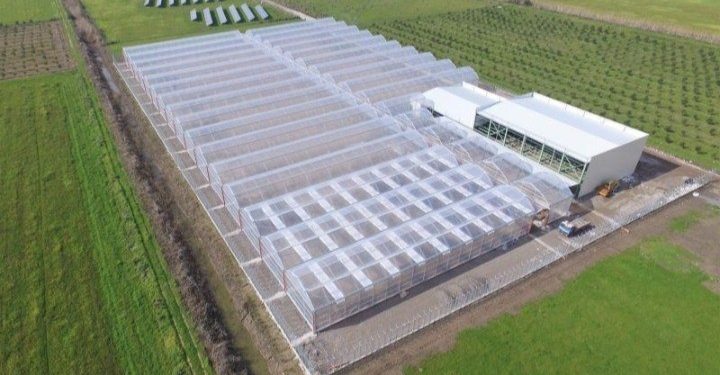As Africa faces the dual challenges of climate change and escalating food security concerns, greenhouse farming emerges as a critical solution. With the continent’s population projected to reach 2.5 billion by 2050, there is an urgent need to enhance agricultural productivity. Traditional farming methods, while historically significant, often fall short in addressing the modern demands of food systems and climate variability. Greenhouse farming, or controlled environment agriculture, offers a transformative approach to meeting these needs.
Why Greenhouse Farming?
Greenhouse farming involves cultivating crops in a controlled environment where variables such as temperature, humidity, and light are precisely managed. This method provides several key advantages particularly suited to Africa’s diverse climate:
- Climate Resilience: Greenhouses offer protection from extreme weather conditions such as droughts and heavy rainfall. By creating stable growing environments, they help maintain consistent crop yields and enhance food security.
- Increased Productivity: By optimizing growing conditions, greenhouses can significantly boost crop yields. Plants grown in controlled environments often mature faster and produce more per square meter compared to traditional farming methods, helping to meet the growing food demands of Africa’s expanding population.
- Resource Efficiency: Greenhouses use resources more effectively than conventional farming. Water recycling systems reduce waste, and the controlled environment minimizes the need for pesticides and fertilizers. This approach not only conserves natural resources but also reduces the environmental impact of farming activities.
- Extended Growing Seasons: The ability to grow crops year-round in greenhouses overcomes seasonal limitations of traditional agriculture. This continuous production cycle can stabilize food supply and prices, making food more accessible and affordable.
Opportunities for Development
The potential benefits of greenhouse farming extend beyond immediate food security improvements, offering broader opportunities for agricultural and economic development:
- Economic Growth: Greenhouse farming can stimulate local economies by creating jobs and fostering new business opportunities. The construction and maintenance of greenhouses, along with the supply and marketing of produce, can boost various sectors. Additionally, the cultivation of high-value crops can increase farmers’ incomes and promote rural economic development.
- Skill Development: Implementing greenhouse technology requires new skills and knowledge. Training programs and educational initiatives can empower local farmers, technicians, and entrepreneurs, cultivating a skilled workforce that drives innovation and growth in the agricultural sector.
- Technology Transfer: Africa can benefit from global advancements in greenhouse technology. Collaborative efforts between African governments, international organizations, and private sector players can facilitate the transfer of knowledge and best practices, accelerating the adoption of greenhouse farming across the continent.
- Sustainable Development Goals: Greenhouse farming aligns with several United Nations Sustainable Development Goals (SDGs), including zero hunger, clean water and sanitation, and sustainable cities and communities. Embracing this farming method can help Africa make significant progress toward these goals.
Challenges and Solutions
Despite the clear benefits, several challenges must be addressed to fully realize the potential of greenhouse farming in Africa:
- Initial Costs: The significant upfront investment required for greenhouse construction and setup can be a barrier. Innovative financing solutions, such as public-private partnerships and microfinance schemes, along with government subsidies, can help mitigate these costs.
- Technical Expertise: Success in greenhouse farming relies on specialized knowledge. Establishing training programs and partnerships with educational institutions can build the necessary skills and support systems for farmers and entrepreneurs.
- Infrastructure: Reliable infrastructure, including energy and water supply, is crucial for effective greenhouse operation. Investments in renewable energy and efficient irrigation systems are essential to overcoming these challenges.
- Market Access: Efficient distribution of greenhouse produce is vital. Developing robust supply chains, improving logistics, and creating market linkages can enhance farmers’ access to local and international markets, improving profitability and sustainability.










